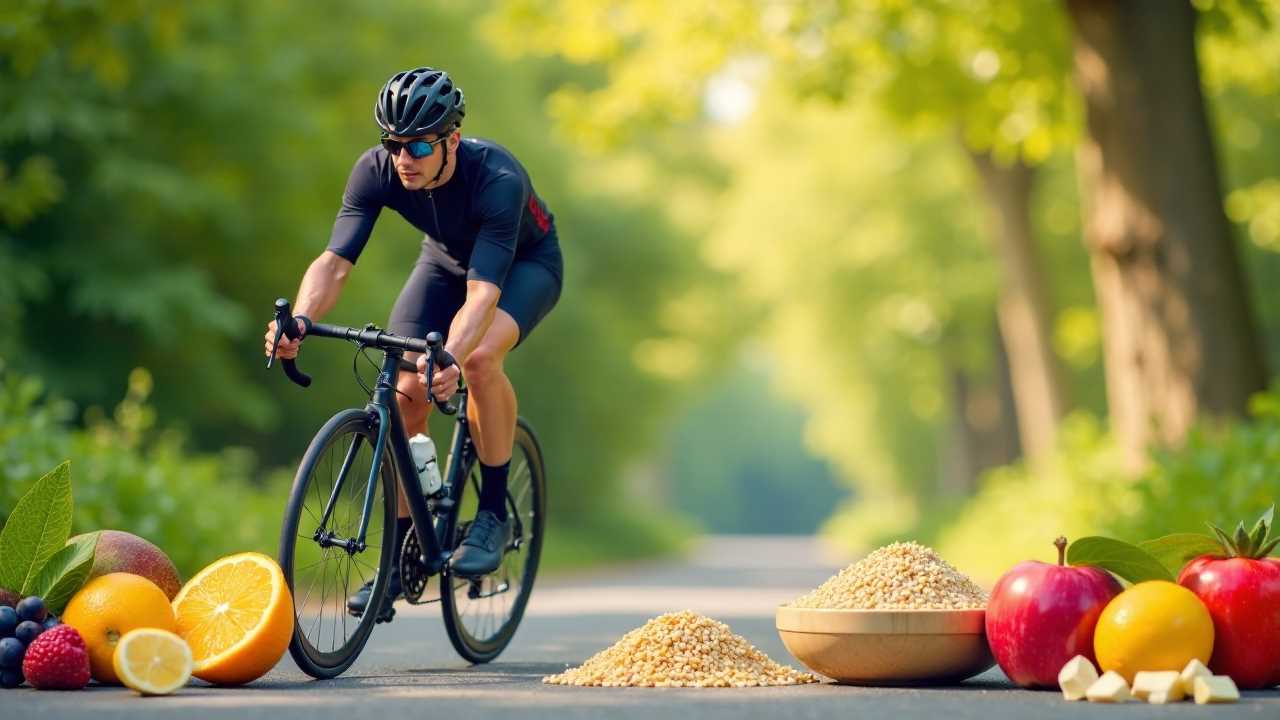
The Importance of Cycling Nutrition
In the world of cycling, nutrition plays a pivotal role in enhancing performance and ensuring optimal recovery. Whether you are a casual rider or a competitive cyclist, understanding the principles of cycling nutrition can significantly impact your endurance and overall cycling experience. Proper nutrition not only fuels your rides but also aids in recovery, allowing you to train harder and longer.
Understanding Endurance in Cycling
Endurance is the cornerstone of cycling performance. It refers to the ability to sustain prolonged physical activity, and it is influenced by various factors, including aerobic capacity, muscle strength, and, most importantly, nutrition. To maximize endurance, cyclists must focus on a well-balanced diet that provides the necessary energy and nutrients.
Carbohydrates are the primary source of energy for cyclists. They are stored in the muscles and liver as glycogen and are crucial for maintaining energy levels during long rides. Consuming adequate carbohydrates before and during cycling sessions can help prevent fatigue and improve performance.
The Role of Carbohydrates in Cycling Nutrition
Carbohydrates are often referred to as the body's preferred fuel source. For cyclists, the right carbohydrate intake is essential for maintaining energy levels and optimizing performance. There are two main types of carbohydrates: simple and complex.
- Simple carbohydrates provide quick energy and are found in foods like fruits, honey, and sports drinks. They are ideal for quick energy boosts during rides.
- Complex carbohydrates, found in whole grains, legumes, and vegetables, provide sustained energy and are best consumed before longer rides.
Cyclists should aim to consume a carbohydrate-rich meal or snack 1-3 hours before a ride to maximize glycogen stores. During long rides, consuming carbohydrates in the form of energy gels, bars, or drinks can help maintain energy levels and prevent fatigue.
Hydration: The Key to Performance
Hydration is another critical aspect of cycling nutrition. Staying properly hydrated helps regulate body temperature, maintain blood volume, and support muscle function. Dehydration can lead to decreased performance, increased fatigue, and even heat-related illnesses.
Cyclists should drink water regularly throughout the day, but it's especially important to hydrate before, during, and after rides. The amount of fluid needed varies depending on factors such as temperature, humidity, and individual sweat rates. A general guideline is to drink about 500-750 ml of water 2-3 hours before riding and to consume 150-250 ml every 15-20 minutes during the ride.
In addition to water, electrolyte-rich beverages can help replenish lost minerals through sweat. Electrolytes, such as sodium, potassium, and magnesium, are vital for muscle function and preventing cramps. Including electrolyte drinks during long rides can enhance hydration and performance.
Electrolytes: Balancing Your Body
Electrolytes are minerals that carry an electric charge and play a crucial role in various bodily functions, including muscle contractions and nerve signaling. During prolonged cycling, especially in hot conditions, cyclists lose electrolytes through sweat. Replenishing these electrolytes is vital for maintaining performance and preventing muscle cramps.
Sports drinks, electrolyte tablets, or natural sources like coconut water can help restore electrolyte balance. It's essential to choose a product that matches your taste preferences and hydration needs. Monitoring your sweat rate and adjusting your electrolyte intake accordingly can help optimize performance.
The Importance of Protein for Recovery
Protein is a vital nutrient for recovery in cycling. After intense rides, muscles undergo stress and require protein to repair and rebuild. Consuming protein post-ride can enhance recovery, reduce muscle soreness, and prepare the body for future training sessions.
Cyclists should aim for a protein intake of 15-25 grams within 30 minutes after a ride. This can be achieved through protein-rich foods such as lean meats, dairy products, eggs, or plant-based sources like legumes and tofu. Combining protein with carbohydrates post-ride can further enhance recovery by replenishing glycogen stores and supporting muscle repair.
Creating a Balanced Cycling Nutrition Plan
To master cycling nutrition, cyclists should develop a personalized nutrition plan that incorporates carbohydrates, hydration, electrolytes, and protein. Here are some tips for creating a balanced cycling nutrition plan:
1. Pre-Ride Nutrition: Focus on consuming a carbohydrate-rich meal or snack 1-3 hours before your ride. Include a mix of simple and complex carbohydrates for sustained energy.
2. During the Ride: Plan to consume carbohydrates and electrolytes regularly throughout the ride. Consider energy gels, bars, or drinks to maintain energy levels.
3. Post-Ride Recovery: Prioritize protein intake within 30 minutes after your ride. Combine protein with carbohydrates to optimize recovery.
4. Hydration Strategy: Monitor your hydration levels before, during, and after rides. Adjust your fluid intake based on environmental conditions and individual sweat rates.
5. Listen to Your Body: Pay attention to how your body responds to different foods and hydration strategies. Adjust your nutrition plan based on your experiences and performance.
Mastering cycling nutrition is essential for enhancing endurance, optimizing performance, and ensuring effective recovery. By focusing on carbohydrates, hydration, electrolytes, and protein, cyclists can fuel their rides and support their bodies in the recovery process. Developing a personalized nutrition plan that aligns with individual needs and preferences will lead to improved cycling experiences and overall performance. Embrace the power of nutrition and watch your cycling performance soar.
 SportsHollywoodLifestyleFashionHome & GardenTrendsPrivacy PolicyTerms And Conditions
SportsHollywoodLifestyleFashionHome & GardenTrendsPrivacy PolicyTerms And Conditions
